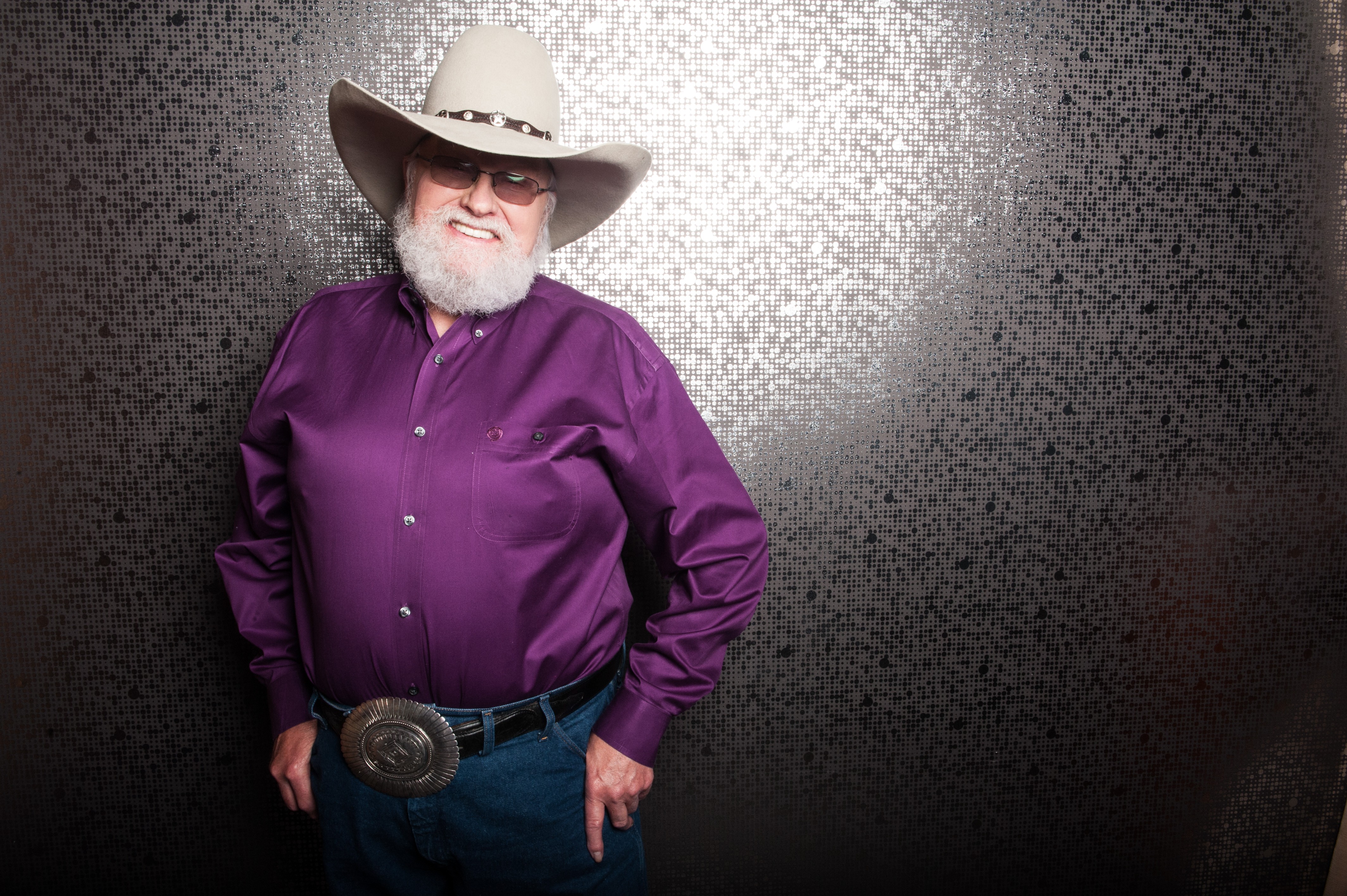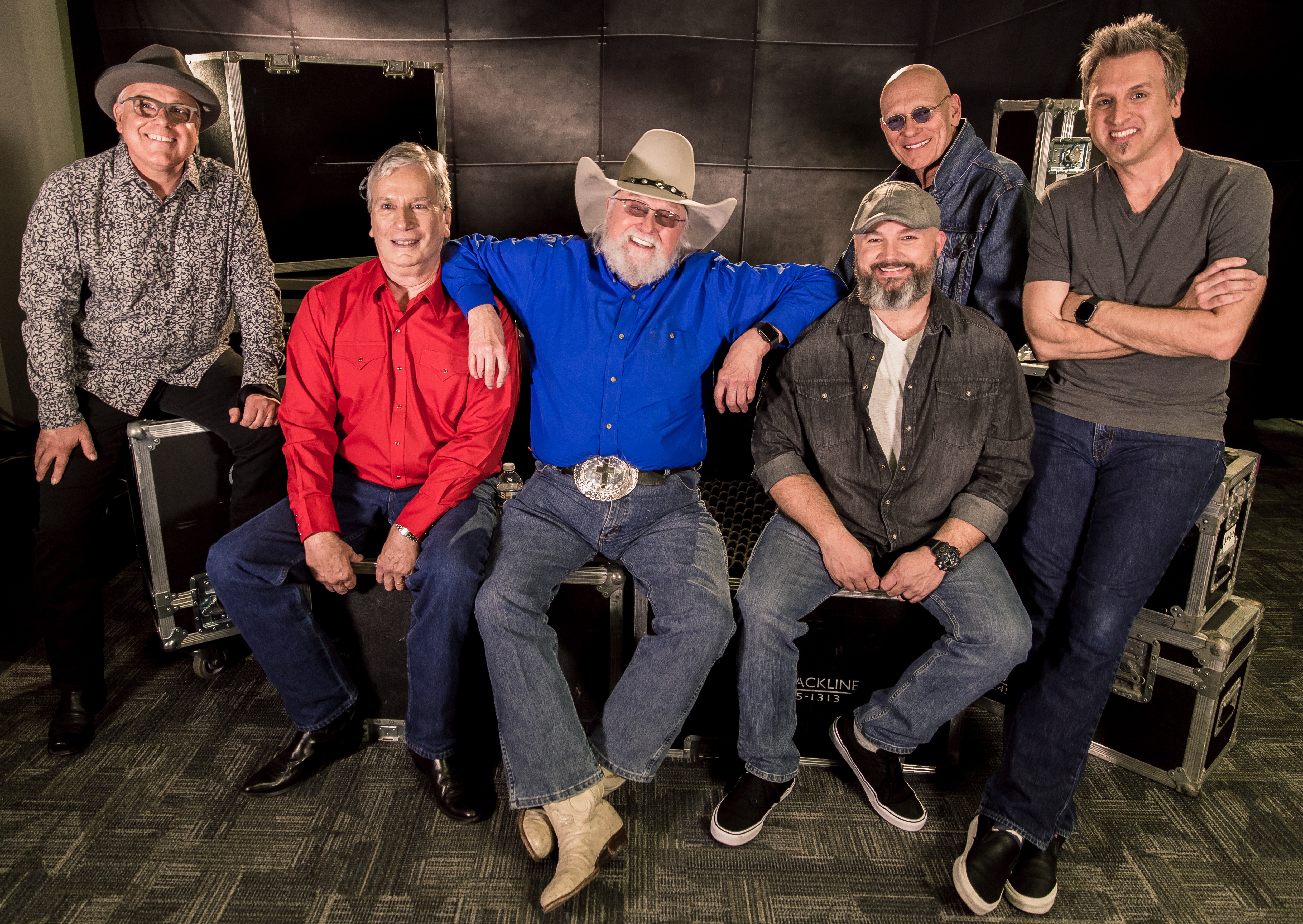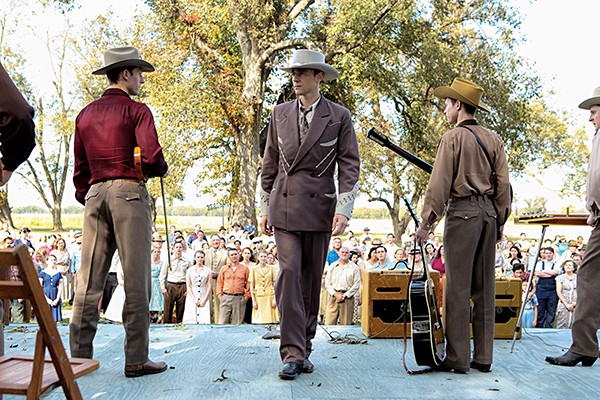You know the story. The Devil went down to Georgia, looking for a soul to steal. And he would have gotten away with it, too, if it weren’t for that ace fiddle player, Johnny. As a cultural touchstone, “The Devil Went Down to Georgia,” which just celebrated 40 years of fiddle-playing in the American collective unconscious, has attained incredible heights; I knew the song before it even occurred to me to wonder who wrote or recorded it. That musician, of course, is Charlie Daniels, and he and his band will perform at BankPlus Amphitheater at Snowden Grove, Friday, June 28th. In advance of the concert, I spoke with Daniels over the phone about his session work with Bob Dylan, diversifying his writing, and the staying power of “The Devil Went Down to Georgia.”

Charlie Daniels
Memphis Flyer: A radio DJ friend of mine told me you got your start as a session musician. Is that true?
Charlie Daniels: Yeah, when I first came to Nashville, I used to do quite a few sessions. I never really fit the style of a what a Nashville player would be. I came off the road after 13 straight years of playing bang-slam rock in clubs, but there were certain sessions I sat in on — Bob Dylan, Leonard Cohen, Marty Robbins. But the day-to-day thing, I was not really a “session player.” So sometimes that part of my career gets a bit overblown, I think because of the magnitude of some of the things I did play on. I did three Bob Dylan albums. That was part of my career, definitely.
Which Dylan albums did you play on?
[I played on] Nashville Skyline, Self Portrait, and New Morning.
That’s a great spread. Nashville Skyline is one of my favorite records.
You know what? I was only supposed to play on one session. I was fairly new to town, and Bob Johnston was the guy who brought me down there, who was producing the record. I said, “I would love to play on one of Bob Dylan’s sessions.” A lot of people think [Nashville Skyline] was the first album that Bob did in town. It was at least the third one he’d done here, and they’d put together the nucleus of a studio band for him. They always used ’em when he came to town. This time, the guitar player they had used was already booked on what would be the very first session. So Bob Johnston said come on down and play the first session, and the other guy will come on after you.
So I went down and played the session, and I was packing my guitars up and getting ready to leave. Bob Dylan asked Bob Johnston, “Where’s he going?” Bob Johnston said he’s leaving, we’ve got another guitar player coming in. … And Bob Dylan said nine words that would change my life: “I don’t want another guitar player. I want him.” That was the beginning of something very wonderful for me, because Bob was always kind enough to put the names of the musicians who played on his records on the back of the album. … It cut a lot of corners for me.
You put out a couple of books recently?
I didn’t know I could write, to be honest. But a friend of mine who worked with us at the time said, “You write story songs. Why don’t you write stories?” I was on the road one time, and I went in the motel room and took some paper and I sat down and started writing. I have a song called “Uneasy Rider,” and I wrote the story of it. And I found out, well, this is fun. So I started doing that.
It sounds like you’ve got a few tricks up your sleeve. Does it keep it interesting and fun for you to change it up that way?
I was born in 1936, and it was way, way before television, so it was radio for me. And at that time, there weren’t many radio stations, so they had to follow the mandate of the FCC and they had to do something for everybody. They had to serve the whole community, which meant playing a lot of different kinds of music. So I got everything. It was such a variety. I went through the big band era, the Frank Sinatra-type era with the crooners. I was exposed to so many kinds of music when I was a kid, I developed a wide taste in music and I developed a wide taste in a lot of things. So I like spreading out a little. … I might write anything. I just finished a novel, my first one.
I bet that keeps you from getting bored.
Well, yeah. … You see people who never ever push the envelope or do anything outside of convention, and there’s so much life out there.

The Charlie Daniels Band
You have an incredibly long career. Do you think you’re able to stay relevant by shaking things up the way you do?
Well, I think so. Of course, I sound like I’m some sort of rebel, and I’m really not. It just happens naturally. I mean, I do stick to my guns. I have lines I’m not willing to cross and things I’m not willing to do. It’s cost me a time or two, as far as money is concerned. It ain’t cost me as far as how I feel about what I do. … I have never cut a hit record with any people other than my band. I’ve had record company people. I tried it one time. I let them talk me into it, and I had a studio band. They players were great, but this is a lifetime to me and it’s only one session to them, one song. I want guys with me who the music means more to than just one paycheck.
If you get people who have been playing together a long time, you get almost a telepathy, a short-hand communication.
I’ve got people who’ve been with me for 40 years. My personal roadie has a hearing impairment, and he’s a very good lip-reader. I can look at him and move my lips, and he knows what I’m talking about. Those are things you develop over the years. It’s not something that happens overnight.
While we’re talking about things that have been around for a while, you had some big anniversaries in May. What is it, 40 years for “The Devil Went Down to Georgia”?
To be honest with you, I have something maturing at one point or another all the time. I never thought too much about “The Devil Went Down to Georgia,” and all of a sudden, it was like 40 [years]. Especially for my generation, the age of 40 is supposed to be the line of demarcation for something. It’s where we go from being a young person into middle age. The age of 18, when you’re a kid means a lot. Of course, we all know what 21 is, and the next one is usually around 40. It just hit me a little more than all the previous ones had. But what hits you so much is the viability of the song today.
It’s truly amazing to have a tune like that that stays. And of course we do it every show.
The Charlie Daniels Band performs with Travis Tritt, The Cadillac Three at BankPlus Amphitheatre at Snowden Grove, Friday, June 28th, 7:30 p.m.




